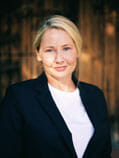To highlight the importance of dual diagnosis treatment programs, NIDA estimates those dealing with addiction are 2x as likely to have mental disorders.
A dual diagnosis received by someone who suffers from both an alcohol or drug addiction as well as a psychological disorder. The most sustainable recovery for a patient dealing with this type of condition will come from a dual diagnosis treatment plan that ensures both pieces of the disorder are effectively managed.
Qualified Rehab Centers Understand the Importance of Dual Diagnosis Treatment Programs
While dual diagnosis treatment centers in California are becoming more prevalent, in the past, substance abuse and psychological disorders were treated as separate entities, at different facilities, utilizing vastly different techniques. Now, as California rehab centers begin to modernize their techniques, we are seeing much more effective dual diagnosis treatment for these co-occurring disorders at centers like Ocean Hills.
About Dual Diagnosis
According to a report published by the Journal of the American Medical Association:
“37% of alcohol abusers and 53% of drug abusers also have at least one serious mental illness” Of all people diagnosed as mentally ill, 29% abuse either alcohol or drugs.”
These statistics are alarming as we realize that those with life-altering disorders tend to self-medicate with drugs or alcohol. However, unlike Ocean Hills, there are still rehabilitation facilities in southern California that do not treat disorders with a dual diagnosis treatment plan to address this problem.
The most prevalent disorders that are co-occurring are depressive disorders, panic disorder, obsessive/compulsive disorder, and phobias. Other psychiatric disorders such as schizophrenia and personality disorders are also commonly diagnosed with substance abuse.
Approaches to Dual Diagnosis Treatment
It is important that those dealing with a dual diagnosis are involved in a well-rounded program that provides structured, supervised support as they progress through rehabilitation. This should include residential or outpatient treatment, individual therapy, medication therapy, peer support groups, education and counseling for families, and even holistic therapies. With a holistic approach, acupuncture, hypnotherapy, massage, equine-assisted therapy, and yoga can also play an effective role in rehabilitation plans for co-occurring disorders.
Ongoing Support After Rehab
Once a rehabilitation program for dual diagnosis has been completed, an ongoing support system is just as crucial as the integrated program. Access to counselors, support groups, and other recovery resources such as the Ocean Hills 12 Step Recovery Program, is important in assisting the transition back into society and daily life.
Adjusting and evolving as time moves forward can be stressful for someone with a co-occurring diagnosis, but resources like transitional housing should be utilized to help minimize their chance of a relapse.
If you or someone you love is in need of dual diagnosis treatment in California, please contact us today. We specialize in the care you’re looking for, using the latest strategies in dual diagnosis treatment.
About the author:

Nicole earned her doctoral degree in Psychology with an emphasis on marriage and family therapy at California School of Professional Psychology. Her doctoral thesis was a grounded theory study exploring the role of alienation and connectedness in the life course of addiction. She specializes in treating addiction and trauma. She is certified in DBT and EMDR, two of the most highly regarded evidence-based methods in psychotherapy. Dr. Doss is a strong LGBT advocate and provides open and affirming support to her LGBT clients.
Dr. Doss’s earlier education included graduating cum laude from the University of California, Irvine in June of 2007 with a Bachelor’s degree in Psychology. While there, she received honors recognition by Psi Chi and Golden Key honor societies.
Nicole has been working with alcoholics and addicts in our California drug and alcohol rehab center as an advisor and counselor for many years. She is passionate about providing quality counseling and care to her clients. Her main focus is on integrating the 12 Step and disease models of addiction with experiential therapeutic theory. She is married to Greg; they have two adorable sons together and an energetic yellow Labrador Retriever.













